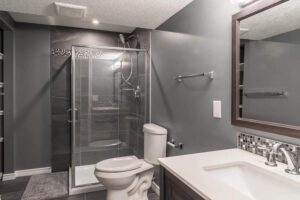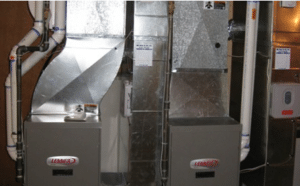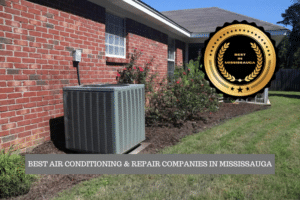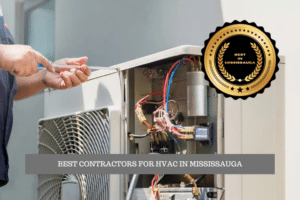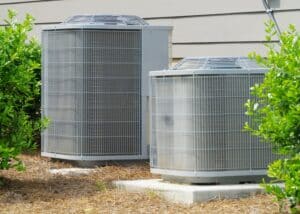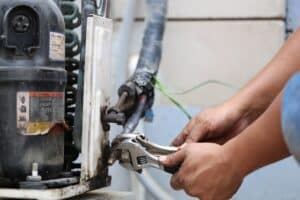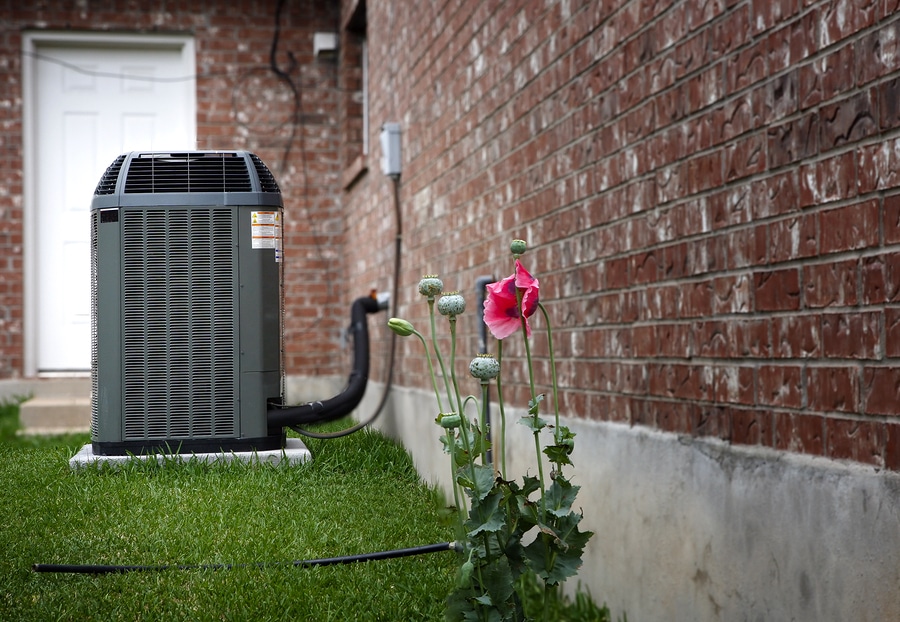
As the days get longer and the weather warms up, homeowners will start turning on their air conditioners to help maintain comfortable indoor air temperature. Your air conditioner should be serviced regularly, especially as you fire it up each spring.
Table of Contents
ToggleWhy is regular air conditioner maintenance so important?
Committing to regular air conditioner maintenance and service will ensure you’re keeping cool and comfortable in the summer heat. If you live in a humid climate, this is especially vital to home comfort. However, feeling uncomfortable in your home isn’t the only thing you should worry about. Air conditioning maintenance is essential for preventing major breakdowns, diminished energy efficiency, and an untimely AC replacement. Here are some reasons why servicing your air conditioner regularly is so important:
Prevent breakdowns
Just like anything mechanical, your air conditioner needs to be inspected and serviced regularly to make sure it’s in good shape and to prevent a breakdown. An HVAC technician will notice if a certain part is worn and needs replacing. Making those small, inexpensive replacements and repairs will help prevent more significant repairs in the future. Preventing damage will extend the life of your air conditioner.
Reduce strain on the system
If your air conditioner is struggling to do its job, it will be straining parts of the system. Clogged ducts, dirty air filters, and other dirty parts make it difficult for the AC to maintain proper air output. The increased strain will but stress on cooling units and the motor, typically resulting in a breakdown or the need for a replacement. Many air conditioner replacements could have been avoided if regular, preventative maintenance had taken place.
Improve energy efficiency
An air conditioner in rough shape can use an exceptional amount of energy to operate. Preventative maintenance, DIY combined with a professional inspection and tune-up each year, will ensure your air conditioner is operating at optimum capacity. Cleaning coils, blades, drain, clearing debris, changing filters, and making small repairs will help your air conditioner operate on less energy. You will appreciate that when your utility bill arrives.
Comfortable, healthy home
Dirty ductwork, clogged air filters, and dust and debris in the HVAC system can diminish indoor air quality. Those with allergies and asthma might see an increase in symptoms, and you might notice more dust around the home. Keep your air conditioner in good repair and you’ll feel cool and comfortable all summer while ensuring clean indoor air quality for you and your family.
Air conditioner maintenance check-list:

There are some air conditioner maintenance tasks that can be tackled DIY. Review this air-conditioner maintenance checklist and make sure your system is running as well as it can be. As a safety precaution, turn off the electrical power source to the unit before you attempt any cleaning or maintenance.
Clean away leaves and debris from the around the air conditioning unit
Your outdoor air conditioner unit should have at least two feet of space around it when it’s operational. You should give it a visual inspection every now and then, to ensure no leaves, sticks, toys, dirt, or other debris is around it. This cleared space allows for proper airflow.
Check the inside of the unit for debris
Dust, leaves, and other debris can get inside the unit over time. Before the hot season arrives, take the time to remove debris from the interior of the AC. First, remove the fan cage on the unit to inspect the interior. Use your hand to grab the larger debris, like sticks and leaves. You can vacuum the rest with a shop vacuum, including vacuuming the dust off the fins. Do not use a pressure washer or a garden hose to wash the inside of your air conditioner as it can damage it.
Make sure your air conditioner is perfectly level
Put a level on your outdoor AC unit to check if it’s level. It’s possible for the ground beneath the air conditioner’s pad to sink over time. The condenser unit must be level to function properly. If it’s uneven, use a shim, like a wood wedge to fill the gap make it level again.
Check and change the air filter
Changing the filter on your HVAC system is one of the easiest things you can do as part of air conditioner maintenance. It is also one of the most important. That simple air filter stops debris and dust from the intake vents from entering your HVAC system. If dust starts getting in there, it can cause your air conditioner to work harder than it needs to. This extra strain on the system can reduce performance, efficiency, and cause premature wear and tear.
You should check the manufacturer’s guidelines for how often the air filter needs to be changed. Otherwise, make sure to change it every 3-6 months minimum. Changing the filter when spring arrives, and then again in the fall when you’ve stopped using the AC as often, is a good schedule for your air filter change. You should also make sure the new filter has the same air-flow rating as the old one. Otherwise, reduced airflow can freeze the indoor coil.
Ensure the evaporator coil is clean
The evaporator coil is located in the blow unit of your HVAC system, inside of the house. Use a soft brush to remove dust from the coil. You can also find special coil cleaners at your local home and building supply store that does not require rinsing. Don’t worry about it foaming or dripping, as the cleaner will just drip into the drain pan.
Check the evaporator drain for clogs
Within the heating and cooling system, warm air is blown through the evaporator coil so it can absorb the heat from the air and release cool air. The warm air will create condensation on the evaporator coil. As the condensation builds, it will start to drip into the drain pan below it, and then from there, it will travel through a tube to the drain. The drain can be in a sink, the floor drain, or located back outside. Sometimes the drain can become clogged with debris or algae build-up and will need to be cleaned. If the condensation can’t drain, it will cause flooding and can damage your air conditioner.
The best way to clear the clog is to suck it out with a powerful shop vacuum. Just tape the vacuum end to the drain tube and let it run for a few minutes. If that doesn’t work, call an HVAC company for air-conditioner maintenance and repairs. To help prevent algae, mildew, and other clogs, some choose to pour a bleach solution of one-part bleach and one part water down the drain.
Clean out the drain pan
Now that you’ve cleaned out the drain itself, it’s time to clean the drain pan. You can so with hot water and soap. If you didn’t have to unclog or clean the drain before this step, now is a good time to use the bleach solution in the drain to help clear algae growth and mildew.
Fire up the air conditioner and test how it performs
After you’ve gone through the air-conditioner maintenance checklist, turn the electrical power back on to the AC and fire it up. Make sure your thermostat is on cooling mode. Then turn down your thermostat so the air conditioner has a chance to run consistently for an hour or more. If everything is running smoothly, you should program your thermostat so it’s keeping your home cool during the day, but turning off at night when AC isn’t necessary. This will help you save on your energy bills.
Schedule annual air-conditioner maintenance and tune-up from an HVAC company
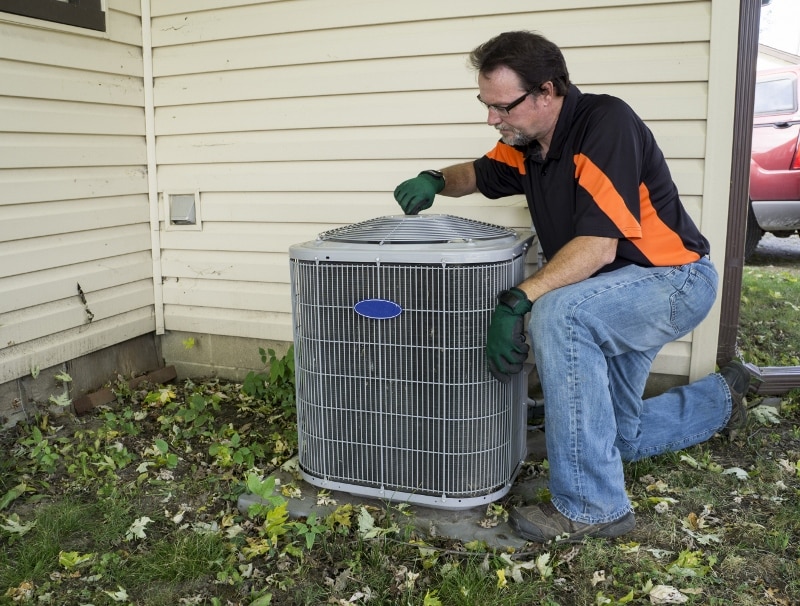
If you notice something isn’t working properly or feel uncomfortable tackling this air-conditioner maintenance checklist yourself, contact an HVAC company. Even if you have done a good job ensuring all the above mentioned are clean and operational, a professional inspection and tune-up are still beneficial at least once a year. An experienced HVAC technician can assist with an inspection, repairs, and even a replacement if need be.
Not only will they check everything in our air-conditioner maintenance checklist, but they can also look at other components of your AC and HVAC system. A trained eye will be able to catch a small issue and remedy it before it becomes something major. Not only will this prevent expensive repairs, but it will also make sure your HVAC system is running safely, and that you aren’t paying more than you have to on energy bills.
In addition to the above, an air conditioner technician will check the refrigerant charge. They’ll also inspect and test contacts, relays, and controls. They will look for loose connections in the wiring, and fix them if found. An AC tune-up will also include lubricating motors and bearings, checking and adjusting belts and pulleys, and make sure the voltage and amperage of the fan, blower motor, and compressor are correct. As you can see, there is a lot more to air conditioner maintenance than a DIYer might be aware of.
When should I call for AC repairs or a replacement?
In a perfect world, your air conditioner will run smoothly without issue for the entire summer after you’ve run through the air-conditioner maintenance check-list. Unfortunately, that is not always the case. Here are some tell-tell signs something is wrong with your air conditioner and you should call a professional air conditioner company for repairs or a replacement:
You’re getting warm air instead of cold
Obviously, if the air coming out of your vents is warm, it’s an indication something is wrong. First, check the thermostat. It could be that you haven’t switched it over to the cooling mode. Then set the temperature lower than the current temperature. If it’s still blowing warm air, there could be a number of things wrong included a compressor breakdown or restricted airflow. It might be time to call in a pro.
Reduced airflow
If you have insufficient air flow, it is a sign your air conditioner is struggling to work properly. There could be a blockage, clogged air filter, or even a broken motor. It could also mean that your air conditioner is old and no longer doing a good job cooling your home. Talk to an HVAC company to discuss your options.
The AC is kicking in too often
Generally, your HVAC system will run through a routine cycle when cooling or heating your home. It’s true that the AC will kick in more often when it’s a hot day, but it shouldn’t be cycling on and off constantly. If you notice it is cycling too often, it might be time for air-conditioner maintenance and repairs. In some cases, a tune-up can do the trick. In others, a replacement might be required.
Your home is more humid than usual
Summer’s can get humid, but if your air conditioner is doing its job, the inside of your home should not have high humidity. A properly working AC should regulate humidity and keep moisture at bay. If it’s not, it might need to be repaired. You can also consider a dehumidifier installed with your HVAC system as well.
You notice a strange smell
If there is an unpleasant odour is wafting around your home and you think it might be from the air conditioning, it probably means it’s in dire need of a cleaning. The biggest cause of odours is microbial growth, like algae and mildew, within the system. It can also be coming from the ducts. This is something an HVAC technician can investigate.
It’s making strange noises
All air conditioners will make a little noise as they start-up and shut down, but it shouldn’t be that noticeable. If you head a loud bang, rattle, buzzing, or other strange noises it could mean you have a big problem. Buzzing and rattling usually mean a part is loose. If you hear a whistling or grinding noise, it can be a variety of serious issues. Call an HVAC company immediately for air conditioner maintenance and repair.
Water is leaking
Condensation should be collected on the drip pan and directed towards the drain. However, this fluid and any refrigerant fluid should not be accumulating or leaking at any time. If you notice an active leak or if the water is pooling around your air conditioner, something is wrong. Water leaks can cause damage to your home, so this is not an issue you want to wait on fixing.
Find a RenovationFind Certified air conditioning company in your city!

